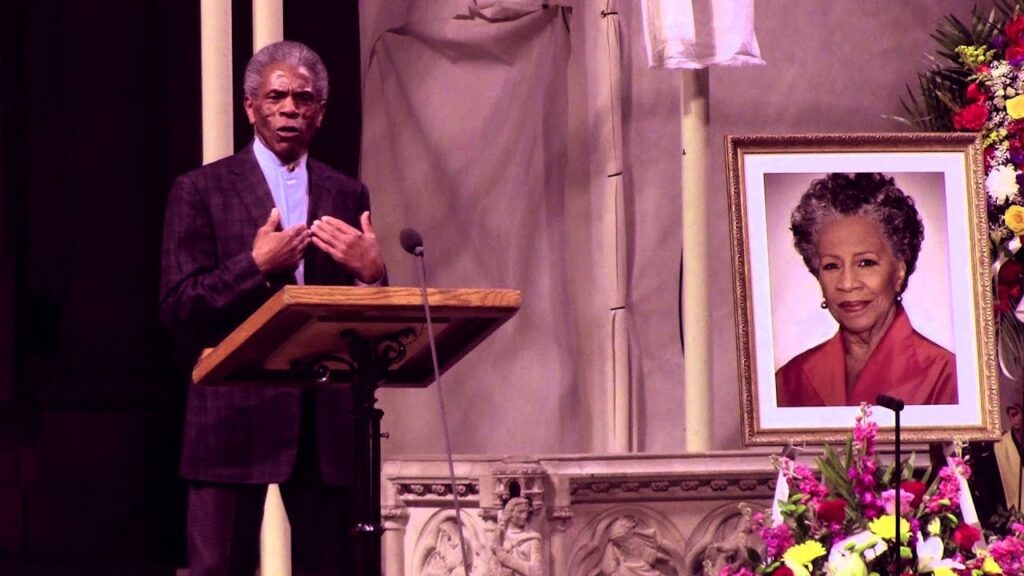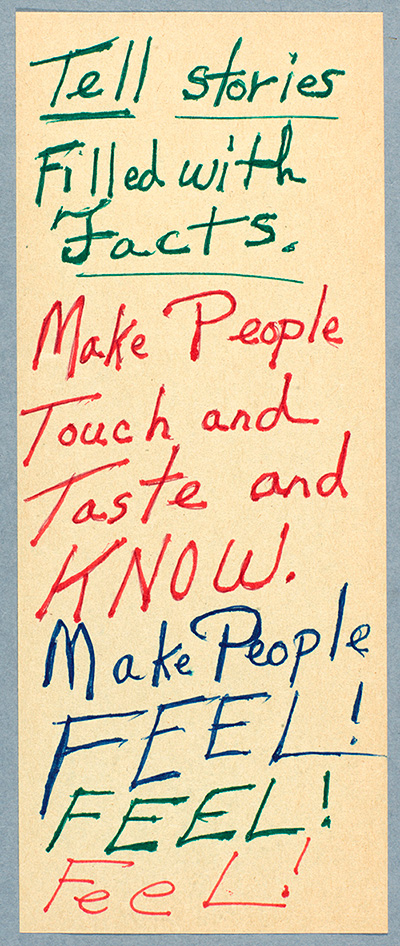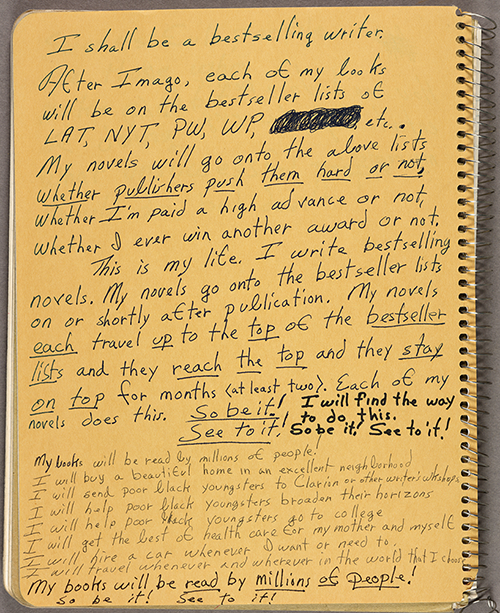Happy New Year
that’s my hope for us all
I don’t remember when I last wrote one of these year end missives. It’s really not my style, but this last year could have been a lollapaloser and I am happy to share the more positive lallapalooza outlook!
As this year ends, my three major projects are all on the verge of fruition:
I wrote “Here’s to Life,” a one man play with music, staring Keith David as Joe Williams, and now we have a completed script and score. John Gentry Tennyson is our amazing music director, and Richard Gant is our stage director. Next step is to prepare for backers’ auditions and to do that we need to raise $300,000. Check out our pitch deck and if you know anyone who might want to invest in a Broadway-bound show, or to make a tax-deductible donation, let me know. (Nothing like a little shameless self-promotion, and I am very proud of this.)
My memoir, “No Wrong Notes in Love or Jazz” is the story of an interracial May-December fling that quickly evolves into a love story against all odds. While searching for self and recognition, I fall irreversibly in love with a married man, and he with me.. ‘Age is just a number’ is a cliché we embrace as we focus more and more on life’s essentials in the here and now: our relationship to ourselves, our values, and each other. John and I were inseparable for 33 years, as business colleagues, lovers, best friends, and finally husband and wife. Ours was an adult relationship, nuanced, sophisticated, imperfect, and real. Manuscript and proposal are both complete and in search of an agent or publisher, but in this changing landscape of book publishing, I am also considering self-publishing.
“Seeking Harmony: The Life and Music of Luther Henderson” has been resurrected. After doing a tremendous amount of research with dozens of interviews, I had been struggling on-and-off for years trying to find the right approach that would be of interest to a general reading public. It is now shaping up as a look behind the curtain:
In a concert hall, after the organized cacophony of the orchestra tuning up, there is a moment of expectant quiet while awaiting the entrance of the conductor.
In the theatre, the magic begins when the lights go down and the overture swells up from the pit creating the aural overview of the journey you are about to take. If you know the songs, you delight in recognizing the themes as one merges with the next…and then the curtain rises.
With heightened anticipation, the audiences are primed to enter a world of suspended disbelief where music communicates directly with the soul.
Musical communication is spiritual communication. The most essential communication happens one-to-one, mind-to-mind, spirit-to-spirit. If the entire human race could learn this kind of give and take, this kind of spiritual communication between minds, then we wouldn’t be going around killing each other. – Luther Henderson
So as you can see, I’ve got three bases loaded and gearing up for a home run.
Amazing, considering that as 2024 was making its transition to 2025, I was looking at what could have been three strikes:
November 2024 I was recovering from a lumpectomy – excised with clean margins – and hopeful of avoiding a recurrence with 5 years of meds, no chemo
– and hopeful of avoiding a recurrence with 5 years of meds, no chemo .
.
Then came December, I fell and fractured my sacrum and a lower vertebrae landing me in the hospital unable to move, followed by too many weeks in a rehab facility.
That’s where I was, oblivious, still on pain meds when, on January 7th, the Eaton Canyon fire broke out two blocks away from my house. Unbeknownst to me at the time, my wonderful neighborhood friends, Dana and Mark, went to my house to check on my mother . The entire neighborhood was under mandatory evacuation orders. They helped another angel, my mother’s caregiver, Rosa
. The entire neighborhood was under mandatory evacuation orders. They helped another angel, my mother’s caregiver, Rosa , pack up essentials and Rosa took mom and Jamie
, pack up essentials and Rosa took mom and Jamie to her house
to her house – that’s where they stayed for the next four weeks while I remained in rehab and the neighborhood was on lockdown, national guard patrolling.
– that’s where they stayed for the next four weeks while I remained in rehab and the neighborhood was on lockdown, national guard patrolling.
Side note about surviving in rehab: the people are nice but woefully short-staffed and underpaid. The more you can do for yourself, the better. I couldn’t walk, but as soon as I could transfer to a wheel chair by myself I felt less trapped. And visits from friends, almost nightly FaceTime with Daisy and Stewart in NY, and in-person visits from Rucker and John M. helped immensely. The food is awful but I made liberal use of UberEats and my ‘brother’ Brian brought me protein shakes and mega-stuffed Oreos .
.
As for the fire, our neighborhood was miraculously spared , but I have friends just a few blocks north and others farther west who lost their homes…but not their lives
, but I have friends just a few blocks north and others farther west who lost their homes…but not their lives . One such friend, the fabulous bassist John Clayton remains an inspiration. From the day of the fire onward, after both his family and his daughter’s family lost their respective homes, and years worth of music manuscripts, along with Ray Brown’s cherished bass, John remains positive, continuing to make exquisite music, supporting others, and mentoring up-and-coming musicians.
. One such friend, the fabulous bassist John Clayton remains an inspiration. From the day of the fire onward, after both his family and his daughter’s family lost their respective homes, and years worth of music manuscripts, along with Ray Brown’s cherished bass, John remains positive, continuing to make exquisite music, supporting others, and mentoring up-and-coming musicians. 
Mom and I returned the house in mid February, and got back to work. She turned 90 in August and continues to teach and supervise psychotherapists via zoom, with many of her students residing in China. Power to her!
As for me, you’ve now come full circle on my news. I have more new projects on the back burner, and I continue to study the craft of storytelling and creative nonfiction. I have one online workshop, The Art of Story, coming up with Tom Jenks, cofounder and editor of Narrative Magazine, the world’s first and foremost digital literary periodical.
I hope this newsletter finds you well and happy. I can’t do much about the world at large, but I can find joy and fulfillment in my own daily routines and in keeping my friends close even if that means Zoom or FaceTime and email instead of in-person. I hope you feel the same
I wish you joy and laughter and lots of good music 





